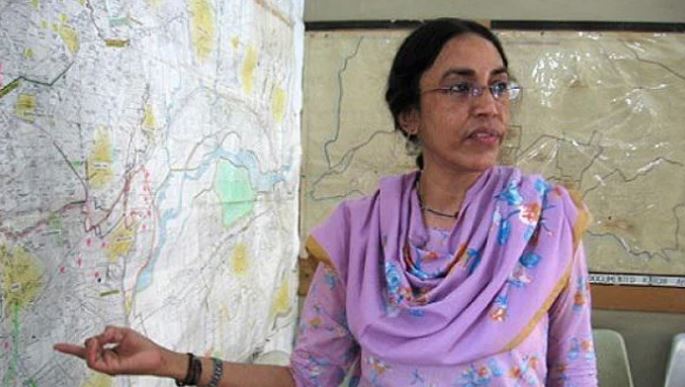Karachi: The Sindh High Court (SHC) on Monday ordered the release of all convicts in the Parveen Rehman murder case, declaring their sentences null and void.
A two-member bench of the SHC, comprising Justice KK Agha and Justice Zulfiqar Ali Sangi heard the appeals of Ayaz Swati, Raheem Swati, Mohammad Amjad, and Ahmed Khan alias Pappu Kashmiri against the verdict of an anti-terrorism court.
The ATC court, in December last year, had sentenced the four accused to back-to-back life imprisonment in the murder case of the social activist.
During the hearing today, the SHC said that the prosecution had failed to prove beyond a reasonable doubt any offences against the accused under Sections 201 (causing disappearance of evidence of an offence or giving false information to screen offender) and 202 (intentional omission to give information of an offence by a person bound to inform) of the Pakistan Penal Code.
The court also declared that the murder case did not fall in the jurisdiction of an ATC as the motive behind the killing was land grabbing, not to create terror.
The court announced its decision and acquitted the accused persons based on the “benefit of the doubt”, as it found many reasonable doubts concerning the appellants’ involvement in the murder.
“Even if all pieces of evidence were admitted, the prosecution failed to prove the charge against the accused beyond a reasonable doubt,” the SHC declared.
After hearing the appeal, the SHC quashed the ATC’s verdict and ordered to release of the convicts from jail if they were not needed in any other case.
The case
On March 13, 2013, Parveen Rehman – a famous urban planner and social activist, the director of Orangi Town – was murdered in a drive-by shooting on her car at the Banaras flyover a few minutes after she left her office for home.
Last year, a Karachi-based ATC awarded four accused double life sentences and the fifth accused a sentence of seven years in the case.
The ATC sentenced Ayaz Swati, Raheem Swati, Amjad Hussain Khan, and Ahmed Khan alias Pappu Kashmiri to double life imprisonment after they were found guilty of her murder. While the fifth accused, Imran Swati, was awarded a sentence of seven years for being an accomplice in the murder of Rehman.
In judicial practice, back-to-back life sentences are two or more consecutive life sentences given to a convict. This penalty is typically used to minimize the chance of the convict being released from prison.
The case was initially registered at the Pirabad Police Station under section 302 PPC and section 34 PPC, which describe the planned murder as having common intention, respectively. Afterwards, Section 7 of the Anti-Terrorism Act 1997 was added to the FIR, which describes the punishment for acts of terrorism.










